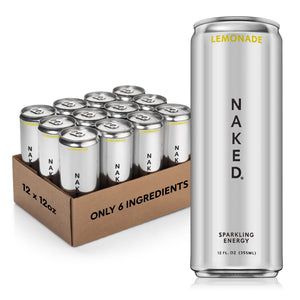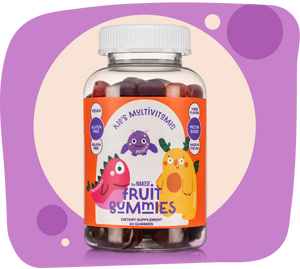Creatine HCL, or Creatine Hydrochloride, has gained attention as a significant supplement among sports and fitness enthusiasts in the sports nutrition world.
Creatine supplementation has been shown to boost athletic performance, improve body composition, increase muscle mass, and improve overall muscle strength.
Creatine hydrochloride has been acknowledged for its enhanced effectiveness and absorption compared to other forms of creatine such as creatine monohydrate.
This article will explore the properties and benefits of creatine HCL and will compare it to creatine monohydrate.
What is Creatine?

Creatine is a a naturally occurring compound found throughout the body and also in protein foods such as meat, fish, and dairy products.
Creatine molecules are made up of three amino acids: glycine, arginine, and methionine.
Creatine and amino acids are necessary building blocks for muscle cells.
Although creatine can be obtained from food, many people take creatine supplements to boost the natural creatine stores in the human body and improve performance.
Creatine monohydrate and creatine HCL are two common forms of creatine. This article will explore the particular properties of creatine HCL.
Chemical Properties of Creatine HCL

Creatine HCL is a particular form of creatine that has a unique structure, allowing for it to have better solubility and absorption.
Understanding the chemical composition and solubility of this form of creatine is key to seeing why it is different from other forms of creatine supplements such as creatine monohydrate.
Composition and Solubility
One of the key distinguishing features of creatine HCL is the fact that it's more water soluble than creatine monohydrate.
Creatine HCL stands for creatine hydrochloride and it is a compound made up of a creatinine molecule bonded to hydrochloric acid.
The combination of creatinine and hydrochloric acid forms a creatine salt, which is uniquely different from creatine monohydrate.
In creatine monohydrate, the creatine molecule is bonded to a water molecule.
The addition of the hydrochloride group in creatine hydrochloride allows for the compound to be more polar, which translates to it being more soluble. This increased solubility means creatine HCL is more easily absorbed and utilized in the body.
On the other hand, creatine monohydrate, another common form of creatine, is actually known for having poor solubility in water.
This can result in undissolved creatine in the digestive tract, causing irritation for some people. There is some evidence to suggest that the reduced solubility of creatine monohydrate may be a potential cause for the increased side effect of water retention in creatine monohydrate vs HCL.
Plus, because creatine monohydrate is not very soluble, it is also likely less effective than creatine hydrochloride.
Benefits of Creatine HCL

There are many benefits to consuming creatine hydrochloride as a supplement. Perhaps the most notable is the enhanced absorption of creatine HCL, which may make it more effective with less possible side effects.
Creatine HCL vs Monohydrate For Enhanced Absorption
Because creatine HCL is more soluble than creatine monohydrate, it may be better absorbed as well. The superior solubility allows for the creatine to dissolve in water more quickly, which may lead to a more rapid absorption by muscle cells.
It's theorized that using creatine HCL vs monohydrate allows for more creatine to be available for uptake into the bloodstream, where it can then be efficiently dispersed to muscles where it is needed.
Ultimately, creatine HCL may help create better outcomes compared to creatine monohydrate for those looking to boost energy production during high-intensity exercise.
Dosage Requirement is Less For Creatine HCL vs Monohydrate

People typically need less creatine HCL than they would if they were taking creatine monohydrate.
Because creatine HCL is more bioavailable, a smaller amount can adequately fuel the muscles just as well as a larger dose of creatine monohydrate.
For most people, taking 1.5 grams of creatine HCL daily is adequate.
For creatine monohydrate, it's recommended that people take 3-5 grams daily, on average.
Of course everyone's individual needs may vary, so these amounts just reflect what is appropriate for most people.
Some individuals choose to engage in a creatine loading phase, in which they take a high dose of creatine for several days before tapering down to a daily maintenance dose.
However, it's important to note that individuals may have different responses and tolerances to creatine, which is why it's important to adjust your dosage depending on your unique needs and tolerance. In other words, a creatine loading phase is not for everyone.
It may be helpful to consult with a healthcare professional such as a Registered Dietitian to determine the appropriate creatine dose for your body and specific needs.
Creatine HCL Helps Build Muscle

In general, creatine supplementation has shown to be an effective way to increase creatine stores and therefor increase lean muscle mass.
However, when comparing creatine HCL vs monohydrate, creatine HCL has been shown to be a bit more effective to increase muscle mass.
Especially when combined with resistance training, creatine HCL is one of the most widely studied sports supplements to lead to increased muscle mass.
While creatine monohydrate supplementation can also lead to muscle protein synthesis and increase lean body mass, scientific evidence suggests that creatine HCL is a bit more effective.
Creatine HCL Leads to More Strength Gains
Taking creatine daily, particularly creatine HCL, can boost overall athletic performance.
Creatine supplementation can increase creatine molecule concentration in the muscle cells, which increases the capacity for ATP (adenosine triphosphate) during high intensity workouts. Adenosine triphosphate is a molecule that stores and transfers energy in cells.
When paired with resistance training such as lifting weights, the creatine HCL in muscle cells helps to give energy to allow muscles to work harder for longer durations, leading to muscle mass weight gains.
There is also evidence to suggest that creatine can allow muscles to work longer and harder before reaching fatigue, which translates to more reps.
This can help explain why creatine HCL can increase lean muscle mass and strength, and why supplementing with creatine can help athletes better reach their goals.
Comparisons with Other Forms of Creatine

The following sections will compare and contrast Creatine HCL to another popular form of creatine, creatine monohydrate.
Creatine HCL vs monohydrate
Creatine monohydrate supplements have been the gold standard for creatine supplementation for many years. However, creatine HCL supplementation has recently gained traction as a popular form of creatine.
Creatine monohydrate is widely studied and has proven effectiveness to enhance athletic performance by increasing strength and boosting muscle growth.
However, creatine monohydrate supplements are also known to have poor solubility, which can lead to some digestive discomfort.
Alternatively, creatine HCL is less likely to cause any digestive discomfort due to its improved solubility.
Unfortunately, there is not as much research on creatine HCL compared to creatine monohydrate, but there is some evidence to suggest that it has similar, if not superior benefits. There is also significant anecdotal evidence that suggests both forms can be effective.
Ultimately, whether someone chooses to use creatine HCL or creatine monohydrate comes down to personal preference.
Both creatine HCL and creatine monohydrate are effective supplements for those looking to improve performance and boost muscle growth.
However, it's likely that creatine HCL is slightly more effective with less likelihood for causing digestive side effects. If you're wondering which is the best creatine to take, you may consider creatine HCL vs monohydrate.
What is the Best Way to Take a Creatine Supplement?

While there is no one best way to take a creatine supplement, it's recommended to be consistent to reap the most benefit.
Many people take creatine as part of their pre workout.
Pre workout, it's important to fuel your body with adequate carbohydrates and protein so you're able to have an effective training session.
Other people like to only take creatine as part of their pre workout routine, while consuming their protein shake after their workout to replenish their body's protein stores and maximize muscle protein synthesis.
Whether or not you choose to take your creatine supplement before or after exercise comes down to personal preference, as both options are effective.
Does Creatine HCL Have Side Effects?

Creatine is generally well-tolerated among most healthy individuals, however there are some potential mild side effects that are worth mentioning.
Water retention
Some people experience weight gain from water retention. Creatine pulls water into muscle cells, which may cause feelings of puffiness.
It's important to understand that any weight changes from creatine are largely due to changes in water retention, rather than true weight gain.
In fact, it's possible that taking creatine may help encourage weight loss, since building muscle is effective for increasing metabolic rate.
Plus, if people are increasing their body's lean muscle mass, it's possible that weight may increase as muscle weighs more than fat.
Gastrointestinal discomfort
Some individuals also experience mild GI discomfort or stomach discomfort, which is likely a result of water retention.
Creatine supplementation can increase water retention and therefore cause some people to feel more bloated. These effects are typically temporary and reside once the body adjusts to the supplement.
Reduce Side Effects of Creatine
If you're concerned about potential side effects of creatine hydrochloride, it's recommended to stick to smaller doses.
A daily maintenance dose of 3-5 grams daily is a good place to start. It's possible to experience more side effects if you take a loading phase dose.
While a loading phase may yield results more rapidly, it's just as effective to maintain a lower daily dose of creatine.
Even if your body's creatine levels do not rapidly increase, a consistent low dose will increase your body's creatine stores over time and yield just as effective results.
It's possible that opting for creatine HCL vs creatine monohydrate may be helpful at reducing potential side effects.
Who Should Use Creatine Hydrochloride?

Creatine supplements are some of the most popular supplements in sports nutrition. Creatine HCL is popular and widely used among athletes, bodybuilders, and even recreational fitness enthusiasts looking to improve performance and muscle gains. Arguably, creatine HCL is the best creatine option on the market as it can most effectively increase muscle creatine stores.
Ideal Candidates
Creatine HCL is ideal specifically for individuals who engage in high-intensity training or activities requiring explosive power.
Creatine can help muscles work harder for longer periods of time, with less rest between reps, which leads to more progress.
If you are working towards building muscle and want to experience peak performance in the gym, creatine supplementation is likely appropriate.
In addition to increasing muscle creatine, research also suggests the benefits of creatine supplementation for improving cognitive function as well. Creatine helps provide energy to the brain to improve memory, focus, and attention span. It's been suggested that creatine can also help improve mood.
Anyone who experiences digestive upset such as cramping or bloating from creatine monohydrate may find creatine HCL to be more tolerable, since it's less likely to cause water retention.
As with any supplement, it's always important to consider individual health status, goals, and potential contraindications before incorporating creatine into your routine.
Conclusion
Creatine HCL is a form of creatine that offers a promising alternative to traditional creatine monohydrate.
Both creatine monohydrate and creatine HCL can help you reach your goals.
However, when comparing creatine monohydrate vs HCL, the ladder has better solubility and therefore better absorption compared to creatine monohydrate, which likely makes it more effective.
While more research is needed to fully understand the benefits of creatine HCL compared to creatine monohydrate, there are significant reasons to suggest its efficacy.
Choosing creatine hydrochloride can help boost sports performance, increases muscle gains, and improves energy levels.













